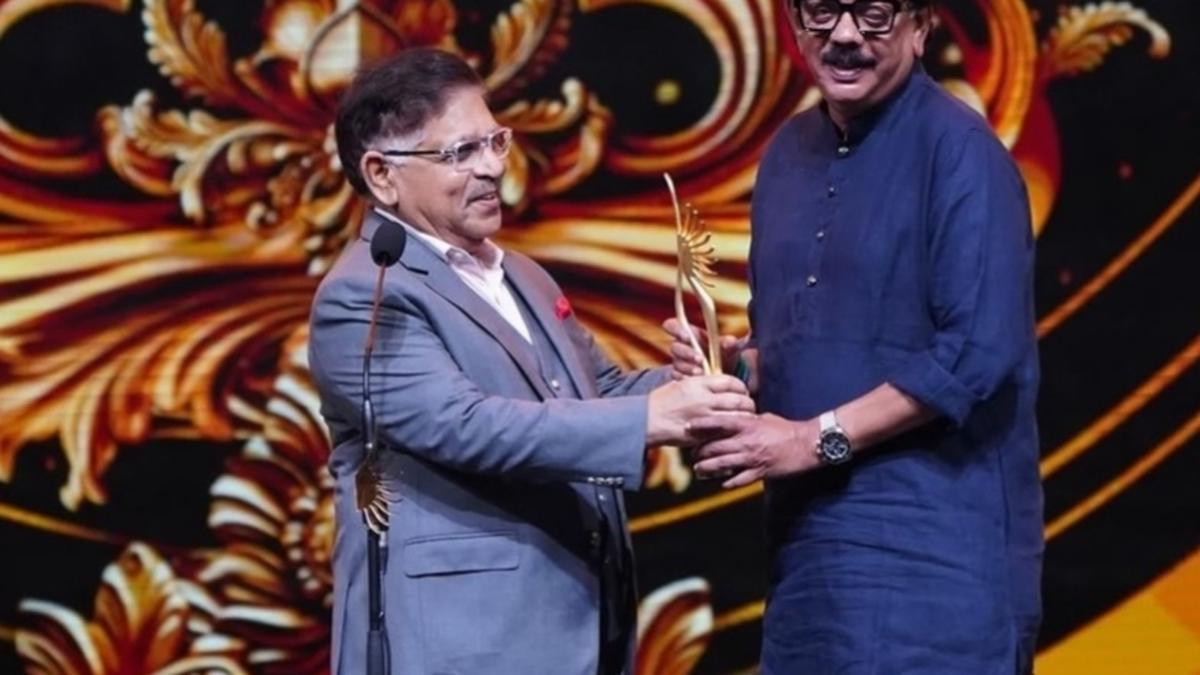
At the recent IIFA Utsavam held in the vibrant city of Abu Dhabi, legendary filmmaker Priyadarshan was bestowed with the Outstanding Contribution to Indian Cinema award. Known for his exceptional storytelling and mastery in filmmaking, Priyadarshan’s acknowledgment at such a prestigious event stands as a testament to his remarkable influence in the realm of Indian cinema. Taking the opportunity of being in the limelight, Priyadarshan engaged in an insightful discussion about his anticipated film, Bhoot Bhangla, starring the Bollywood superstar Akshay Kumar.
Expressing his enthusiasm about the project, Priyadarshan told reporters, “I am back with a big Bollywood project after a long time. Moreover, I am reuniting with Akshay Kumar after ages. It’s going to be a special film, and I am positive about recreating the magic.” The collaboration is eagerly awaited by fans as it marks the coming together of a dynamic actor-director duo that has delivered blockbusters in the past.
As Priyadarshan gears up for his milestone 100th film, industry buzz suggests a reunion with his close friend and famed superstar Mohanlal. This collaboration further heightens expectations, given the powerful synergy between the two during previous projects. At the IIFA Utsavam, Priyadarshan sat down for an exclusive conversation with The Hindu, offering reflections on his storied career, the trajectory of the Malayalam film industry, and the complex challenges today’s veteran filmmakers encounter.
During the insightful exchange, Priyadarshan pointed out that, despite the enduring stardom of titans like Mammootty and Mohanlal, the industry is undergoing a significant shift. He noted that emerging filmmakers are prioritizing content over formulaic storylines, striving to depict reality-based scenarios that resonate deeply with contemporary audiences. “For example,” he highlighted, “how a love story is treated in a Malayalam film today has changed. Writers and filmmakers are focusing more on the psychological intricacies within relationships, exploring beyond the passé notion of societal opposition to romance. This shift signifies the modern cinema landscape.”
Reflecting on the colleagues he has outlasted in the film industry, Priyadarshan acknowledged the difficulties many face in adapting to evolving trends and technologies.
. “I don’t want to take names,” he remarked, “but many of my colleagues, who were much better than me in filmmaking, are no longer in the profession.” He attributed their departure to an inability to adjust and highlighted the necessity of embracing change, underscoring the potential to learn from the younger generation—echoing filmmaker Peter Chan’s sentiment about learning through children.
A staunch advocate of innovation, Priyadarshan emphasized the importance of using technology creatively to thrive in the highly competitive film industry. He stressed, “Right from the days of Charlie Chaplin and Laurel and Hardy, the secret to good humour has remained unchanged. It’s about connecting with the inner child within your audience.” He warned against restricting audience reach by relying on mature themes like double entendre, which can deter families from cinema halls.
Discussing the challenges facing comedy films, Priyadarshan pinpointed vulgar content as a significant deterrent for family audiences, contrary to the common belief that streaming platforms are solely responsible for diminishing theatre attendance. Citing the Malayalam film Hridayam as an instance, he appreciated its success, attributing it to its clean narrative addressing modern dispositions which appealed to a broad audience base.
A seasoned filmmaker, Priyadarshan reminisced about an era wherein Bollywood productions set stylistic benchmarks that regional filmmakers aspired to match. He recounted moments watching Hindi films, wondering about their superior production values. This reflection guided him during the remaking of popular Malayalam films into acclaimed Hindi versions like Bhool Bhulaiyaa and Hera Pheri. Understanding and catering to the Hindi audience’s sensibilities is, according to Priyadarshan, imperative for successful regional remakes. He opined that overlooking these distinctions has led to the frequent failure of many Hindi remakes.
The conversation also touched upon the transient nature of acting careers today compared to the past. Reflecting on the longevity of actors like Sankaradi, who commanded a strong presence for decades, Priyadarshan lamented the limited run contemporary character actors experience, often capsizing after a mere half-decade due to new industry dynamics.
As Priyadarshan continues to shape stories that define Indian cinema, the landscape he operates in is an amalgamation of nostalgia and modernity—a balance he navigates with an eye towards both legacy and innovation.












